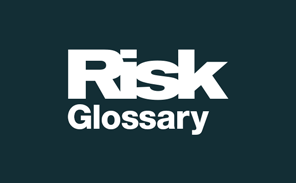Climate risk and environmental risk management: latest trends and best practices
View AgendaKey reasons to attend
- Explore climate regulation trends and insights into what the future may hold
- Discuss best practices for climate scenario analysis and stress-testing
- Develop strategies for the transition to net zero
Customised training
Does your team require a tailored learning solution?
We partner with leading tutors and Risk.net’s editorial team to design learning solutions that drive real impact for your team, every step of the way.
About the course
In this course, our subject matter expert will provide an in-depth exploration of climate and environmental risks, their key drivers and their financial impact. Attendees will gain insights into the latest trends, best practices and regulatory developments, enabling them to navigate complex climate-related challenges.
The training will cover transition and physical risks, focusing on measurement methodologies, key risk drivers and available data sources. Participants will also explore scenario analysis and stress-testing techniques, learning how to apply these tools to assess climate risk impacts across diverse scenarios.
By the end of the course, attendees will be well prepared to contribute to climate and environmental risk activities, their integration into business as usual risk management processes and drive impactful change within their organisations.
What participants say:
“Peter was absolutely spectacular as a trainer — his knowledge, clarity, and enthusiasm made the sessions both engaging and highly informative. He explained complex concepts in a very accessible way and encouraged active participation throughout. Highly recommended!”
Pricing options*:
- Early-bird rate: save up to $800 per person by booking in advance
- 3-for-2 rate: save over $3,000 by booking a group of three attendees
- Subscriber reward: save 30% off the standard rate if you are a Risk.net subscriber
- Season tickets: cost-effective option for groups of 10 or more. Learn more
*T&Cs apply
Learning objectives
- Define climate risks and their implications for financial institutions
- Examine the key factors driving physical and transition risks
- Get ahead in climate reporting
- Explore the data needed to assess climate risks
- Gain insights into physical risk measurement methodologies
- Perform hands on exercises using public climate data and tools
Who should attend
Relevant departments may include but are not limited to:
- Climate risk
- Sustainability
- Operational risk
- Enterprise risk
- Model risk
- Stress-testing
- Strategy
- Credit risk
- Finance
- Compliance
Tutors

Peter Plochan Risk Learning Faculty
Principal risk management advisor, Emea
SAS
Peter is a risk management specialist and global risk management trainer with a focus on ESG, sustainability and climate risks. He has over 17 years of experience in risk and finance processes and technology. His main competency areas include enterprise risk management, model risk management, financial risk management, risk data and analytics, finance and risk management technology and risk regulations. He is passionate about helping companies to improve their existing risk, finance, climate and ESG processes, providing advice, educating and driving business development in these areas. He carries out research and collects best practices in risk management, which he shares via webinars, trainings and articles.
Expand your learning
The premier meeting place for the risk community. Providing clarity and guidance on the fast-changing regulatory landscape of capital, credit and market risk, liquidity and derivates use.
Risk Journals deliver academically rigorous, practitioner-focused content and resources for the rapidly evolving discipline of financial risk management.
Risk Books are authored by leading professionals and academics. With over 150 books spanning 1,000s of chapters, our publications team is committed to connecting readers with these world class experts.
Regularly updated by our team analysts, journalists and producers, our glossary demystifies the terminology and acronyms used in risk management, risk transfer, policy, technology and innovation.



